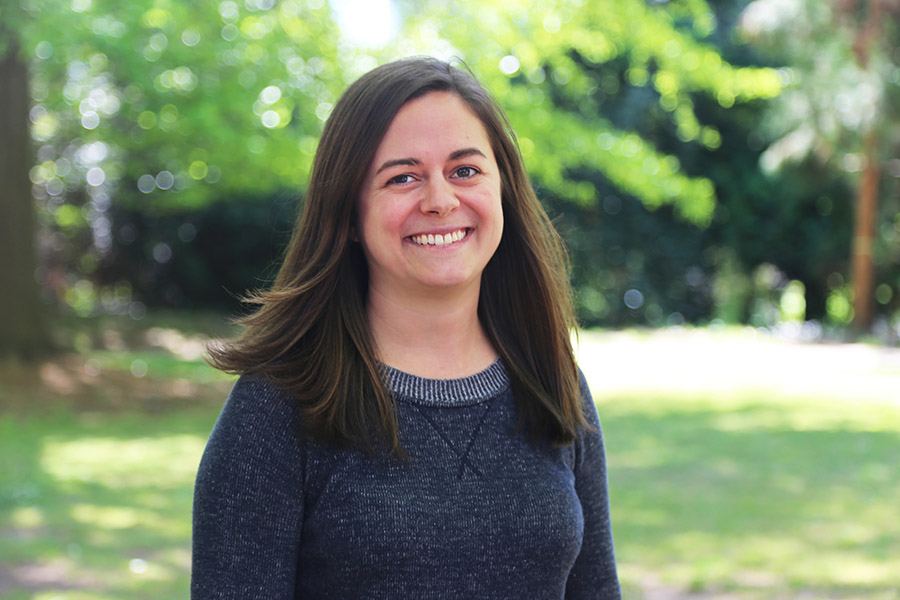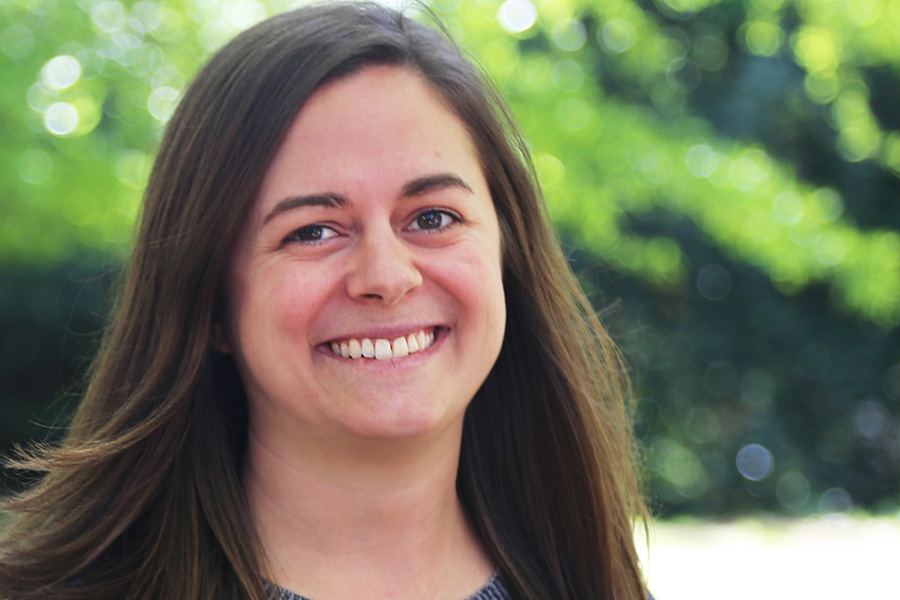 |
If we tell people how they’re using energy, can we encourage them to conserve and change their behavior?
That question drives School of Civil and Environmental Engineering Ph.D. student Abby Francisco, who has just learned the National Science Foundation is supporting her work through a graduate research fellowship.
“My research involves studying ways to use data on buildings, energy consumption and people to make better decisions about our energy systems, particularly in communities and cities,” Francisco said.
|
“Energy feedback systems provide building occupants feedback on their energy use to promote behavior change. I’m looking at the ways these systems can expand to the community scale to encourage community participation with energy systems, behavior change, and ultimately more sustainable consumption of energy and natural resources.”
The NSF fellowships are some of the most prestigious funding for graduate students in the United States. They support students for three years, offering opportunities for professional development and international collaboration as well as money. Francisco said the fellowship offers her much more flexibility for the rest of her Ph.D. work.
“It’s something that I had heard about from a lot of my peers as a great opportunity,” she said, “but the application was also a great exercise for figuring out and practicing communicating my research. Even after not being accepted my first time applying, it was great practice for setting up my research for the upcoming year.”
Francisco works with Frederick Law Olmsted Professor John Taylor in his Network Dynamics Lab. Ultimately, she said she wants to use her research now and in the future to help policymakers enact community-based approaches to improve sustainability of the built environment.
The NSF fellowships are among the oldest such awards in the country, according to the foundation, and they have “a long history of selecting recipients who achieve high levels of success in their future academic and professional careers.” This year, NSF offered funding to roughly 17 percent of the more than 12,000 applicants.

